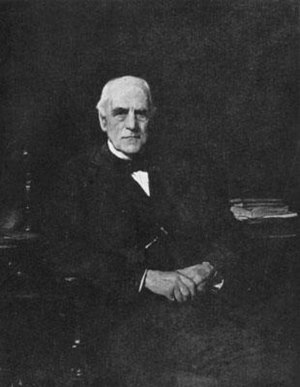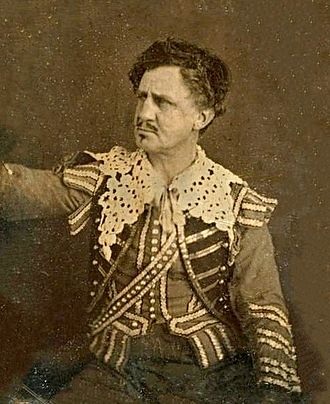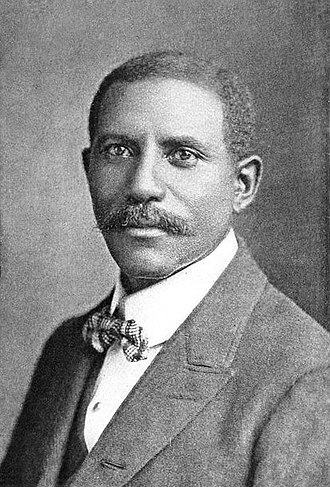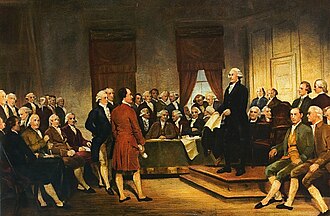Discover Your Roots
SIGN UPDiscover Your Roots
SIGN UPJunius is a male given name of Latin origin, meaning "youthful." It is often associated with historical figures, writers, politicians, and philosophers. The name has been borne by notable individuals such as Junius Bassus, an ancient Roman politician, and Junius Brutus Booth, an English actor. Additionally, there are places named Junius, such as a town in New York and an unincorporated community in South Dakota. The name Junius has also been used for a band, an album, and a horse. With its Latin roots and historical significance, Junius carries a timeless and dignified meaning, making it a meaningful choice for those seeking a name with a rich heritage.

Junius Spencer Morgan I (1813-1890) was an influential American banker and financier, known for founding J. S. Morgan & Co. and establishing the Morgan banking empire. Born in Holyoke, Massachusetts, he gained experience in the banking industry through apprenticeships and partnerships, eventually becoming a prominent figure in global finance. His family's roots can be traced back to Wales, and his father, Joseph Morgan, was a successful businessman and a founding partner of the Aetna Fire Insurance Company. After his early ventures, Morgan made significant contributions to Howe Mather & Co. and later formed J. M. Beebe, Morgan & Co., solidifying his position in the financial elite. In 1853, he joined George Peabody's banking house in London, where he played a pivotal role in strengthening the firm's American accounts. By the time of his death, the Morgan banks had become dominant forces in government and railroad finance, securing their position as a pre-eminent American banking house. Junius Spencer Morgan I's legacy continues to shape the financial world to this day.

Junius Brutus Booth (1 May 1796 – 30 November 1852) was a renowned English-born American actor, known for his impressive performances and significant influence in the world of theater. He was the father of John Wilkes Booth, the notorious assassin of President Abraham Lincoln, as well as other notable children including the esteemed tragedian Edwin Booth, Junius Brutus Booth Jr., and the talented writer Asia Booth Clarke. Booth's early life was marked by a diverse array of career aspirations, ranging from printing and architecture to law and sailing, before he ultimately found his passion for acting. His journey to fame began in England, where he gained national recognition for his compelling portrayal of Richard III and drew comparisons to the esteemed actor Edmund Kean. In 1821, Booth ventured to the United States, where he quickly rose to prominence as one of the most celebrated actors, captivating audiences with his remarkable talent.Despite various personal and professional challenges, Booth's legacy endures as an influential figure in the history of theater, leaving a lasting impact on the American stage. His contributions to the performing arts continue to be remembered and celebrated, cementing his status as a prominent figure in the theatrical world.

Junius George Groves (April 12, 1859 – August 17, 1925) was an influential American farmer and entrepreneur celebrated as one of the wealthiest black Americans of the late 19th and early 20th centuries. His remarkable success earned him the title of the "Potato King of the World" by 1902, as he revolutionized potato growth methods, outperforming all others in the world at that time. Born into slavery, Groves overcame significant challenges to become a pioneer in agricultural production and a leading advocate for economic opportunities for black Americans. His financial accomplishments, highlighted in Booker T. Washington's book "The Negro in Business" (1907), were instrumental in combating racism and providing support to the African American community.After serving in the United States Army and gaining freedom following the Civil War, Groves ventured to Edwardsville, Kansas, with minimal resources. Despite starting with just 90 cents, he persevered, eventually expanding his farmland to approximately 500 acres and achieving unprecedented success in potato production. Alongside his wife Matilda, Groves had 14 children and used his wealth to establish various organizations and support initiatives aimed at empowering the black community.His dedication to combating racism extended to providing economic opportunities for both black and white laborers on his farm, founding a community center and a golf course for black citizens, and actively contributing to the prosperity of the African American population. Groves' legacy continues to inspire and his impact

Junius Brutus Stearns (1810–1885) was a prominent American painter celebrated for his renowned Washington Series, created between 1847 and 1856. As a long-standing member and council member of the National Academy of Design, his contributions to the art world were significant. Born in Arlington, Vermont, he later had a distinguished career and familial legacy. Stearns' notable works include "Washington as a Statesman," depicting President George Washington addressing the Constitutional Convention, which was honored with a US Postage Stamp in 1937. Additionally, his painting "Hannah Duston Killing the Indians" portrays a historical event, although certain artistic choices have sparked discussions. Tragically, Stearns passed away at the age of 75 due to a horse-and-carriage accident in Brooklyn, New York. His impact on the art world and his unique artistic perspective continue to be revered and studied.

Junius Scales (March 26, 1920 – August 5, 2002) was a prominent figure in the Communist Party of the United States of America during the 1950s. Born into a socially prominent family in Greensboro, North Carolina, Scales joined the Communist Party in 1939 and became a union organizer. After serving in the U.S. Army during World War II, he returned to Chapel Hill and continued his involvement in the party. Becoming the state chairman of the party in 1948, he publicly identified himself as the Communist Party leader in North Carolina, which led to personal and professional challenges. Scales went semi-underground in 1951 and was arrested in Memphis in 1954 under the Smith Act for his involvement in an organization advocating violence. His legal ordeal lasted seven years, including two appeals to the Supreme Court, and he eventually served 15 months of a six-year sentence at Lewisburg Penitentiary. President John F. Kennedy commuted his sentence in 1962, and after his release, Scales settled in New York and found employment at The New York Times. His memoir, "Cause At Heart: A Former Communist Remembers," provides insights into his experiences.
All images displayed on this page are sourced from Wikipedia or Wikimedia Commons.We use these images under their respective Creative Commons or public domain licenses. Wherever applicable, author attributions and license information are provided. If you believe an image is used incorrectly or outside its license terms, please contact us so that we can review and correct the issue.